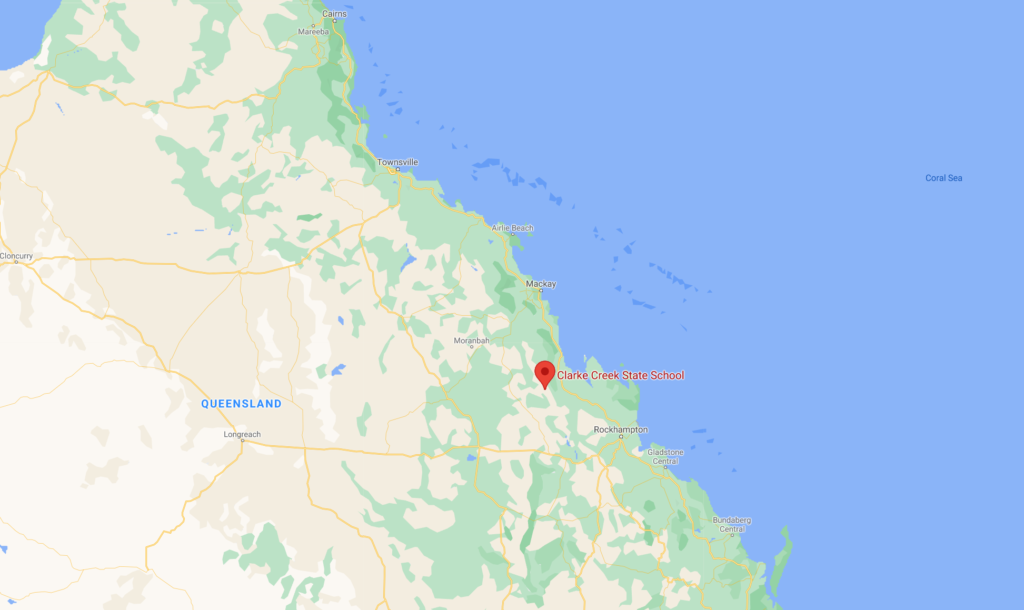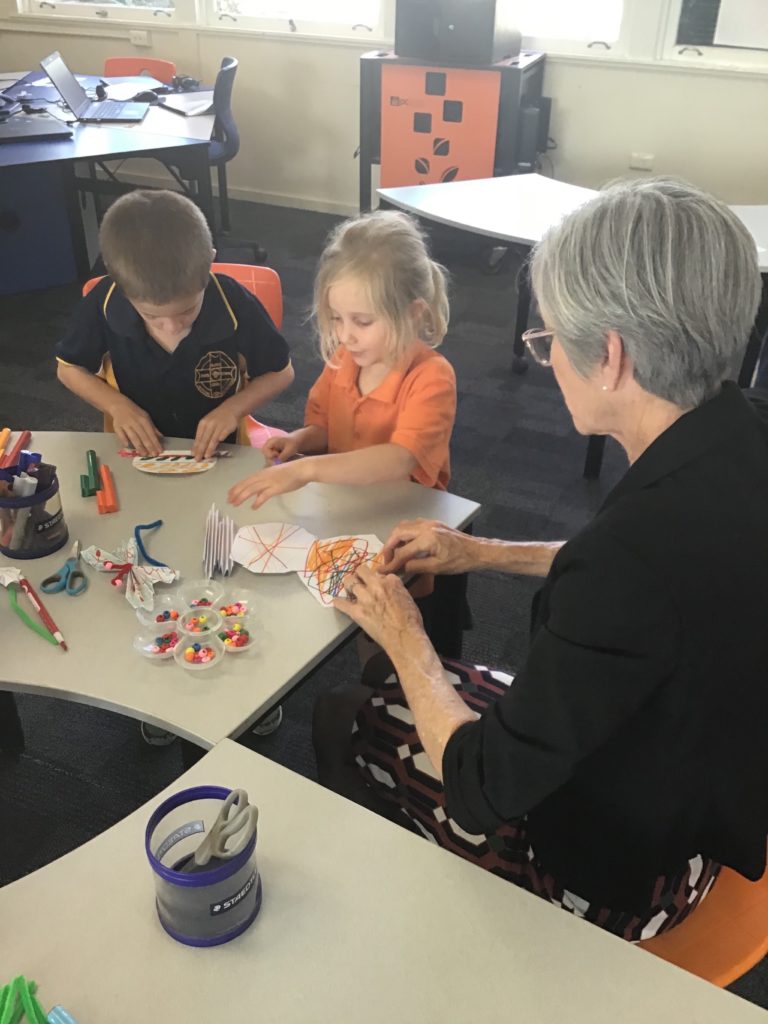Community stories: 30 April 2021

In the remote locality of Clarke Creek in Queensland’s Isaac Region, a community of 320 people have been doing it tough in recent years. In March 2017 Tropical Cyclone Debbie and flash flooding devastated the area, and then came the drought.
People from Clarke Creek mostly own or work on cattle stations, many run by extended and intergenerational family groups. School-aged children in the area were exposed to many impacts of Cyclone Debbie – from damage to community and family infrastructure, livestock and pet animal losses, to financial strain putting pressure on their families.
A problem-solving school
The saving grace of this community is the Clarke Creek State School (CCSS), which, in the absence of a township, serves as the community hub. It caters to the needs of 17 students from Kinder to Year 6, extends support to siblings, parents and extended families of those students, and provides a meeting place for all groups in the area, including the P&C Association.
The Clarke Creek P&C Association knew it was critical to support children through all this, and that school can help facilitate healing by providing the sense of normality that’s needed after a disaster. Since residents of Clarke Creek had to travel up to 230kms to access health and professional services, the P&C Association knew that, for help to be constructive, it would need to be brought into Clarke Creek.
The school had previously gained the services of a chaplain directly though the National Schools Chaplaincy Program, however the school could only afford one visit per fortnight without outside funding. By late 2018, it was clear that there was a need for ongoing disaster support for families. With so many pressures affecting the ability to fundraise locally in the tiny community, the P&C Association applied to FRRR’s In a Good Place program. A grant of $10,000 funded by CCI Giving essentially doubled the chaplain’s visits to weekly from July 2019 until March 2020, when the Department of Education funding applications opened.
Chaplaincy support proves vital

In small schools, the school chaplain is often the welfare provider, and plays a key part of the school support team.
The chaplaincy support at CCSS started shortly after the school and community were devastated by cyclone Debbie, and proved to be highly valuable to students, staff and the broader community, in their ongoing recovery and general mental health and wellbeing. The chaplain attends the school one day each week, working with the children in groups and one on one sessions. She provides emotional support and fosters leadership and kindness in the classroom, playground, and at school events.
“Chappy’, as she is fondly nicknamed, has been imparting those crucial life skills to the children and helping them to deal with the many challenges unique to living in a remote community in an isolated context.
It was a crucial time to bring in extra support, and the P&C Association don’t make light of the importance of Chappy’s role. Throughout COVID-19, the chaplain helped children deal with changes to their learning and became a central figure of stability for parents and the wider community.
The CCSS Principal notes how important the chaplain is in helping students transition through their education.
“I think the older students love the way she makes sure they all know that they have a voice and that someone cares enough to make the time to listen. She helped prepare older students for boarding school, and taught younger ones to be engaged in learning and practising kindness.”
The chaplain attends school and community events, and works with other schools in the cluster, thus creating support networks in the broader communities and creating an inclusive atmosphere and strengthened sense of community. But it’s the flow-on effects from the children’s gains that have the greatest power, as described in the final report:
“Our greatest achievement has been just stabilising our community. Oddly, this was really achieved through the children coming home from school with this positive energy and outlook from their time with Chappy, rather than working direct with parents and community. When the parents knew the kids would be ok and had someone strong to lean on, it was like a weight lifted and the school became the place of ‘normalcy and support’. Things picked up from there.
“In a small school and community, we have to stick together. Chappy has fostered this sense of belonging and caring in our children and it emanates from there.”

